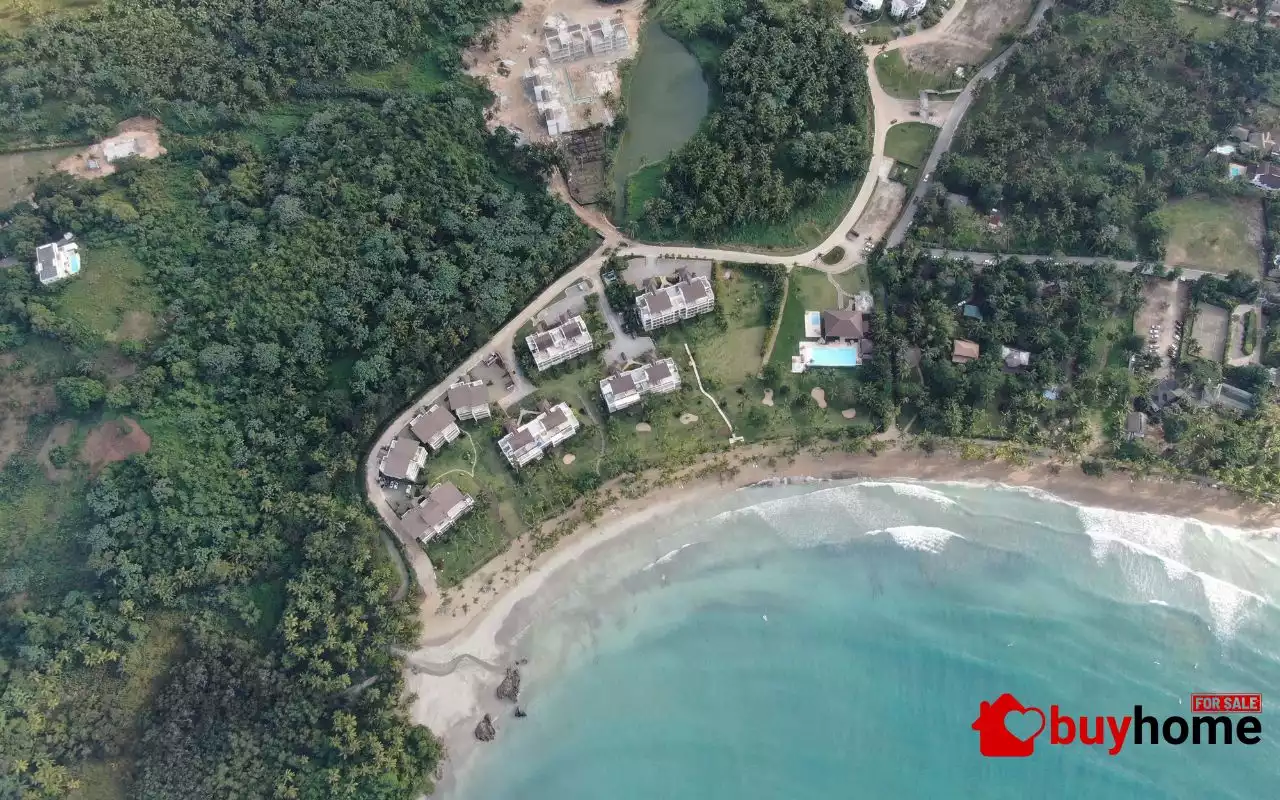📋 Table of Contents (TOC)
- Introduction to Buying Property in Turkey
- Understanding the Turkish Real Estate Market
- Legal Framework for Foreign Property Buyers
- Finding the Right Property
- The Buying Process Explained
- Necessary Documentation for Foreign Buyers
- Tax Implications and Costs
- Post-Purchase Considerations
- Common Challenges and Solutions
- Conclusion
Introduction to Buying Property in Turkey
Turkey has become a popular destination for foreign investors looking to purchase property, thanks to its stunning landscapes, rich culture, and favorable investment conditions. The allure of Turkey lies not only in its beautiful coastlines and historical sites but also in the potential for lucrative real estate investments. In this guide, we will explore the essential legal steps that foreign investors must take to buy property in Turkey. Understanding these steps is crucial for ensuring a smooth transaction and protecting your investment. From navigating the legal framework to understanding the buying process, this article will provide you with the necessary knowledge to make informed decisions.
Understanding the Turkish Real Estate Market
The Turkish real estate market has witnessed significant growth over the past decade, attracting investors from all over the world. Factors contributing to this growth include the country’s strategic location, economic development, and government incentives for foreign buyers. Major cities like Istanbul, Ankara, and coastal regions such as Antalya and Bodrum are particularly popular among foreign investors. The market offers a diverse range of properties, from luxury villas to affordable apartments, catering to various budgets and preferences. Additionally, the Turkish government has implemented policies to simplify the buying process for foreigners, including the right to obtain Turkish citizenship through property investment. Understanding the dynamics of the Turkish real estate market is essential for making informed investment choices.
Legal Framework for Foreign Property Buyers
Foreigners are allowed to buy property in Turkey, but there are specific legal requirements and regulations that must be followed. The legal framework governing property purchases by foreigners is primarily outlined in the Land Registry Law and the Foreigners and International Protection Law. Foreign investors can purchase residential properties, commercial properties, and land, provided they comply with certain conditions. For instance, foreign buyers must ensure that the property is not located in a military zone or designated as a strategic area. Additionally, the total area of property owned by foreigners in Turkey cannot exceed 10% of the total area of the municipality. It is crucial for foreign investors to engage a reputable real estate lawyer who can guide them through the legal intricacies and ensure compliance with local laws.
Finding the Right Property
Finding the right property in Turkey involves thorough research and consideration of various factors. Potential buyers should start by determining their budget, preferred location, and type of property they wish to invest in. Engaging a local real estate agent who understands the market can be invaluable in this process. They can provide insights into neighborhoods, property values, and available listings. Additionally, prospective buyers should visit properties in person to assess their condition and suitability. It is also advisable to check the property’s title deed (Tapu) to ensure that it is free of encumbrances and that the seller has the legal right to sell. Conducting due diligence is essential to avoid potential pitfalls and ensure a satisfactory purchase.
The Buying Process Explained
The buying process for property in Turkey typically involves several key steps. Once a suitable property is identified, the buyer and seller will negotiate the price and terms of the sale. A preliminary contract is often drawn up, which may require a deposit to secure the property. Following this, the buyer must apply for a tax number and open a bank account in Turkey, as these are necessary for the transaction. The next step involves conducting a title deed transfer at the local land registry office, where both parties must be present. It is essential to have a translator if the buyer does not speak Turkish. Once the title deed is transferred, the buyer is responsible for paying the relevant taxes and fees, including the title deed transfer tax. The entire process can take anywhere from a few weeks to several months, depending on various factors.
Necessary Documentation for Foreign Buyers
Foreign buyers must prepare and submit several documents when purchasing property in Turkey. The primary documents required include a valid passport, a tax number, and a bank account statement. Additionally, buyers may need to provide proof of income or financial stability, especially if they are applying for a mortgage. It is also advisable to obtain a military clearance certificate, which confirms that the property is not located in a military zone. This document is typically obtained through the local military authority and is a crucial step in the buying process. Engaging a legal expert can help ensure that all documentation is correctly prepared and submitted, minimizing the risk of delays or complications.
Tax Implications and Costs
When buying property in Turkey, foreign investors should be aware of the various taxes and costs associated with the purchase. The primary tax is the title deed transfer tax, which is typically 4% of the property’s declared value. Additionally, buyers should budget for other costs, such as notary fees, legal fees, and any applicable VAT. It is also important to consider ongoing costs, such as property taxes, maintenance fees, and utility bills. Understanding these financial implications is crucial for effective budgeting and ensuring that the investment remains profitable in the long run. Consulting with a financial advisor or real estate expert can provide valuable insights into managing these costs.
Post-Purchase Considerations
After successfully purchasing property in Turkey, foreign investors should consider several post-purchase steps to protect their investment. First, it is essential to register the property with the local municipality to ensure compliance with local regulations. Additionally, buyers should familiarize themselves with property management options, especially if they do not plan to reside in Turkey full-time. This may include hiring a property management company to handle rentals or maintenance. Investors should also stay informed about changes in local laws and regulations that may affect their property rights. Finally, maintaining good relationships with neighbors and local authorities can enhance the overall experience of property ownership in Turkey.
Common Challenges and Solutions
While buying property in Turkey can be a rewarding experience, foreign investors may encounter several challenges along the way. Common issues include language barriers, bureaucratic hurdles, and potential scams. To mitigate these challenges, it is advisable to work with reputable real estate agents and legal professionals who are familiar with the local market and regulations. Conducting thorough research and due diligence can also help identify potential red flags before committing to a purchase. Additionally, joining expat communities or forums can provide valuable insights and support from others who have navigated the process. By being proactive and informed, foreign investors can successfully overcome these challenges and enjoy their property in Turkey.
Conclusion
Buying property in Turkey can be a lucrative investment opportunity for foreign investors, provided they understand the legal steps involved. From navigating the legal framework to conducting thorough research and due diligence, each step is crucial for ensuring a successful transaction. Engaging local professionals, staying informed about market trends, and being aware of potential challenges can significantly enhance the buying experience. As Turkey continues to attract foreign investment, understanding the nuances of the property market will empower investors to make informed decisions and secure their investments. With the right approach, buying property in Turkey can lead to financial growth and a rewarding lifestyle in one of the world’s most beautiful countries.
❓ Frequently Asked Questions
Can foreigners buy property in Turkey?
Yes, foreigners can buy property in Turkey, subject to certain legal requirements and restrictions. It’s essential to comply with local laws and regulations.
What types of properties can foreigners purchase?
Foreigners can purchase residential properties, commercial properties, and land in Turkey, provided they meet specific conditions set by the government.
What is the process for obtaining a tax number in Turkey?
To obtain a tax number, foreigners must visit the local tax office with their passport and complete the necessary application forms. This number is required for property transactions.
Are there any restrictions on property ownership for foreigners?
Yes, foreign ownership is restricted in military zones and strategic areas. Additionally, the total area owned by foreigners in a municipality cannot exceed 10%.
What documents are needed to buy property in Turkey?
Key documents include a valid passport, tax number, bank account statement, and a military clearance certificate. Additional documents may be required based on the property type.
What taxes should I expect when buying property in Turkey?
Buyers should expect to pay a title deed transfer tax (typically 4% of the property’s value), notary fees, and legal fees, among other costs.
How long does the property buying process take in Turkey?
The buying process can take anywhere from a few weeks to several months, depending on various factors, including the complexity of the transaction and local regulations.
Do I need a lawyer to buy property in Turkey?
While it’s not legally required, hiring a lawyer experienced in Turkish real estate law is highly recommended to navigate the legal complexities and protect your interests.
Can I get a mortgage as a foreigner in Turkey?
Yes, many banks in Turkey offer mortgage options for foreign buyers, but the terms and conditions may vary. It’s advisable to consult with local banks for specific requirements.
What should I do after purchasing property in Turkey?
After purchasing, it’s important to register the property with the local municipality, consider property management options, and stay informed about local regulations.
In conclusion, buying property in Turkey is an exciting venture that can yield significant rewards for foreign investors. By understanding the legal steps involved, conducting thorough research, and seeking professional guidance, investors can navigate the complexities of the Turkish real estate market with confidence. The key to a successful property purchase lies in being well-informed and prepared for the various stages of the buying process. As Turkey continues to evolve as a prime destination for real estate investment, those who take the time to understand the market and its regulations will be well-positioned to capitalize on the opportunities available. Whether you are looking for a vacation home, a rental property, or a long-term investment, Turkey offers diverse options that cater to every investor’s needs. Embrace the journey, and enjoy the process of finding your dream property in this beautiful country.



